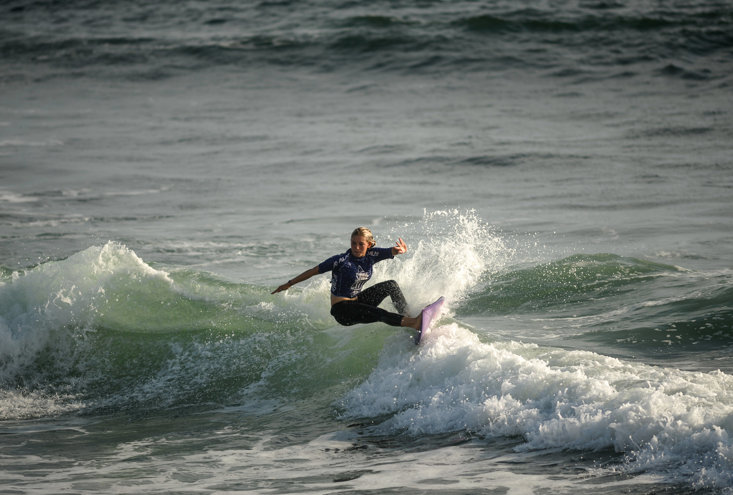Last year the International Shark Attack File received 130 "incidents" - their word not ours - worldwide.
Approximately between five to fifteen "incidents" with sharks end in death, and not for the animal. But before we get carried away let's remember the odds of actually getting attacked and killed by a shark are somewhere in the region of one in four million, according to The Wildlife Museum.
But there's good news for anybody not happy with those very, very long odds. A team of experts at Flinders University in Adelaide - it would have to be Australia, wouldn't it? - are developing revolutionary wetsuit fabrics designed to reduce the risk of fatalities from shark attacks. The purpose is to make material that is ‘bite-proof’, stemming blood loss which - nobody will be surprised to hear - is the leading cause of death from a shark attack.
And how will they know if it works? Here's how - it's being road tested on actual, real life Great. White. Sharks. I know, right?
The material used in the end product will be similar to the super-strong plastic Kevlar, the material most famously used in bulletproof vests.
The Department of Primary Industries, based in New South Wales, has granted the research team around $90,000 (£47,000) to fund the project.
“The aim of this study was to assess the ability of new fabrics incorporated into neoprene (the rubber predominantly used in wetsuits) to reduce injuries from shark bites,” says Associate Professor Charlie Huveneers, leader of the Southern Shark Ecology Group in the College of Science and Engineering.

“Our results showed that both fabrics tested may provide some protection against shark bite and could be used as part of a shark bite mitigation strategy.
“We tested the fabric on Great White Sharks because it is the species responsible for the most fatalities from shark bites.”
Importantly the team have needed to compare the penetrative force of a shark bite, something that has been tested via sensors at the Neptune Islands Group Marine Mark.
“We found that the new fabrics were more resistant to puncture, laceration, and bites from white Sharks than standard neoprene,” said Associate Professor Huveneers.
“More force was required to puncture the new fabrics compared to control fabrics (laboratory-based tests), and cuts made to the new fabrics were smaller and shallower than those on standard neoprene from both types of test, i.e. laboratory and field tests.
“Although these fabrics may reduce blood loss resulting from a shark bite, further research is needed to measure the magnitude of injury to human flesh.”
The equipment is now due further tests at one of the most populous Great White sites in Australia, the Spencer Gulf.
Just when you thought it was safe to go into the water, it actually might very well be.